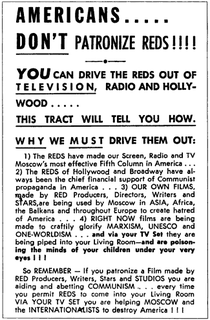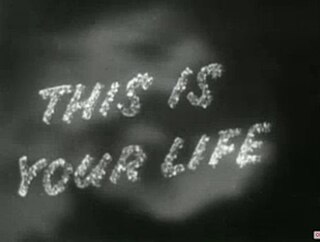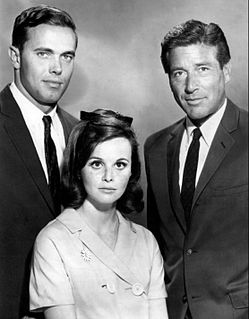This Is Your FBI was a radio crime drama which aired in the United States on ABC from April 6, 1945 to January 30, 1953 for a total of 409 shows. FBI chief J. Edgar Hoover gave it his endorsement, calling it "the finest dramatic program on the air".

The United States of America (USA), commonly known as the United States or America, is a country comprising 50 states, a federal district, five major self-governing territories, and various possessions. At 3.8 million square miles, the United States is the world's third or fourth largest country by total area and is slightly smaller than the entire continent of Europe's 3.9 million square miles. With a population of over 327 million people, the U.S. is the third most populous country. The capital is Washington, D.C., and the largest city by population is New York City. Forty-eight states and the capital's federal district are contiguous in North America between Canada and Mexico. The State of Alaska is in the northwest corner of North America, bordered by Canada to the east and across the Bering Strait from Russia to the west. The State of Hawaii is an archipelago in the mid-Pacific Ocean. The U.S. territories are scattered about the Pacific Ocean and the Caribbean Sea, stretching across nine official time zones. The extremely diverse geography, climate, and wildlife of the United States make it one of the world's 17 megadiverse countries.

The American Broadcasting Company (ABC) is an American commercial broadcast television network that is a flagship property of Walt Disney Television, a subsidiary of the Disney Media Networks division of The Walt Disney Company. The network is headquartered in Burbank, California on Riverside Drive, directly across the street from Walt Disney Studios and adjacent to the Roy E. Disney Animation Building, But the network's second corporate headquarters and News headquarters remains in New York City, New York at their broadcast center on 77 West 66th Street in Lincoln Square in Upper West Side Manhattan.
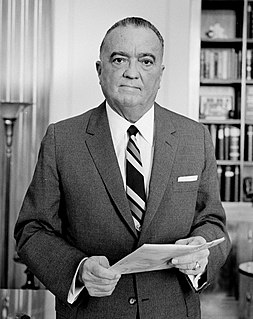
John Edgar Hoover was the first Director of the Federal Bureau of Investigation (FBI) of the United States and an American law enforcement administrator. He was appointed as the director of the Bureau of Investigation – the FBI's predecessor – in 1924 and was instrumental in founding the FBI in 1935, where he remained director for another 37 years until his death in 1972 at the age of 77. Hoover has been credited with building the FBI into a larger crime-fighting agency than it was at its inception and with instituting a number of modernizations to police technology, such as a centralized fingerprint file and forensic laboratories.
Producer-director Jerry Devine was given access to FBI files by Hoover, and the resulting dramatizations of FBI cases were narrated by Frank Lovejoy (1945), Dean Carleton (1946–1947) and William Woodson (1948–1953). Stacy Harris played the lead role of fictional Special Agent Jim Taylor. Others in the cast were William Conrad, Bea Benaderet and Jay C. Flippen. [1]

Frank Andrew Lovejoy Jr. was an American actor in radio, film, and television. He is perhaps best remembered for appearing in the film noir The Hitch-Hiker and for starring in the radio drama Night Beat.
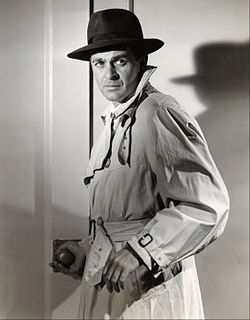
Stacy Harris was a Canadian-born actor with hundreds of film and television appearances. His name is often found spelled Stacey Harris.
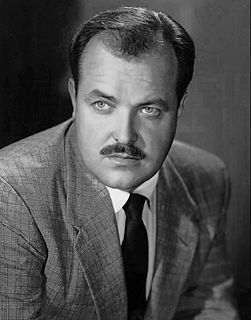
William Conrad was an American World War II fighter pilot, actor, producer, and director whose career spanned five decades in radio, film, and television, peaking in popularity when he starred in the detective series Cannon (1971–1976).
This Is Your FBI was sponsored during its entire run by the Equitable Life Assurance Society of the United States (now AXA Equitable Life Insurance Company).

